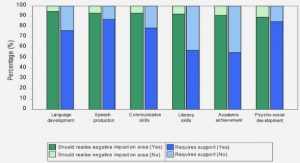Get Complete Project Material File(s) Now! »
Research Philosophy, Methodology and Methods
Research Philosophy: A Relativistic Approach
We adopted a relativistic viewpoint throughout this thesis, as we wanted to explore whether education in business schools provides the relevant skills needed for Management 2.0. We have chosen for this view as, starting with the literature review, we believed it was relevant to discuss various literature and compare and contrast them. Furthermore, we believed both the institutional and the student perspectives should be taken into account, as students may have had different opinions than the institution had on whether certain skills are taught or helped to develop. For instance, faculty members, as actors of the institutional perspective, may have thought they teach certain skills, while the students might not have agreed with this at all. A conclusion is derived after discussing these various perspectives. However, this does not have to imply that there is going to be one final answer or conclusion, the final thoughts may consist of various ‘truths’ as it depends on the viewpoint of the observer (Easterby-Smith, Thorpe & Jackson, 2015). Furthermore, all opinions were taken into account and not one view was deemed more important than others.
Social constructionism is adopted throughout our thesis, as we wanted to capture the perspectives of the participants. This implied that there was a focus on people’s opinions and experiences, rather than basing research on facts and measurements. We were interested in ‘whole’ situations and not in a yes or no, people should be able to discuss and express their opinion and feelings (Easterby-Smith, Thorpe & Jackson, 2015). Adopting social constructionism meant that we could not determine whether the opinions and experiences of the students and faculty members are actually true, however, as the students and faculty members all have knowledge about the content of the education they receive and provide, we perceive the data gained as being of quality (Flick, 2014). Subjectivism is also taken into account in our research, as “knowledge is co-created” (Easterby-Smith, Thorpe & Jackson, 2015, p.187) and derived from the conversations, “social interchange” we had with the students and faculty members (Flick, 2014, p.78). Furthermore, knowledge on this research could have been created when we, the researchers, interacted with our research participants (Easterby-Smith, Thorpe & Jackson, 2015).
Taken into account both the ontology and the epistemology, we decided to conduct a qualitative analysis. Relativism and social constructivism point to opinions and experiences, and these cannot easily be derived from a numerical analysis (Easterby-Smith, Thorpe & Jackson, 2015). We gained insight into numerous perspectives, namely the faculty’s and the students’ (Flick, 2014), which provided us with rich data and from this we can induce our final ideas (Easterby-Smith, Thorpe & Jackson, 2015).
Approach and Strategy: Exploratory Multiple-Case Study and Case Selection
Exploratory Multiple-Case Study
To explore whether education in business schools provides the relevant skills, we chose to do a multiple-case study, where the cases we selected are programmes in a business school. “Case study is an approach capable of examining simple or complex phenomenon, with units of analysis varying from single individuals to large corporations and businesses” (Berg, 2009, p.317). The information gathered in a case study is rich and detailed as we went in-depth into the topic of skills. Furthermore, the “case is viewed as providing important evidence for the argument” (Gerring, 2017). We used a multiple-case study as we wanted to have a higher understanding of the role of business schools, and believed that more programmes lead to a broader insight into business schools. We realised that we might have been less in-depth than if we had chosen only one case study, but we thought that a broader overview and more generalisation was more applicable for our thesis. At the same time, we did not want to research more than two cases, as we still wanted to get this in-depth knowledge and more case studies would have made it more difficult to get this knowledge. Furthermore, more than two cases did not fit in with the time span for this thesis, as data collection and analysis took quite some time, and we wanted to make sure we gained as much knowledge as possible during data collection and analysis. Thus, the goal of our multiple-case study was to both explore the cases chosen and the role of business schools in general. To be able to reach both these goals, we first did an in-case analysis, where we looked at each programme separately and then compared the skills and the forces in an cross-case analysis. The goal of a cross-case analysis was “broad thematic presentation linking the theoretical and empirical findings across cases to wider bodies of literature” (Pettigrew, 1990, p.281), which meant in our case to lift our research from a consultancy report for JIBS to a more generalised report about education in business schools, where we used the cases to provide an insight into this education.
The case studies were exploratory, which is “when a study is undertaken with the objective either to explore an area where little is known or to investigate the possibilities of undertaking a particular research study” (Kumar, 2011). We first identified several skills from the introduction and theoretical background before we collected the data. We believed that we needed a sort of guide of what skills are relevant for Management 2.0, so we could structure the focus groups and interviews a bit and knew what to look for in the document research. After the theoretical background, we did not have a framework or hypothesis that said whether the case studies either provided these skills or not.
Case Selection: BSc International Management and MSc Global Management
The specific cases chosen were (1) the Bachelor of Science programme International Management and (2) the Master of Science programme Global Management at JIBS. As we study at JIBS, we have chosen these programmes as it increases “the probabilities of negotiated access” (Pettigrew, 1990, p.276), meaning that there is a bigger chance that we have access to students within the programmes. And that the programmes have “high experience levels of the phenomenon under study” (Pettigrew, 1990, p.276), indicating that the cases studied are connected to the topic of the research. Both programmes indicated the importance of the changing business life and the importance of managers in the introduction on the JIBS website. International Management presents itself as preparing students “for the dynamic nature of today’s business life” (Jönköping International Business School, 2018a). Furthermore, it is mentioned that “in a world with increasing international competition there is a great need for managers who can develop existing businesses by seizing new business opportunities” (Jönköping International Business School, 2018a). Global Management present itself as “a programme specially designed to equip you with the knowledge and skills required to become an effective leader in diverse business contexts and varied intercultural settings” (Jönköping International Business School, 2018b).
Furthermore, the cases could be found in the context of JIBS, which is “the first business school in Sweden to receive both EQUIS and AACSB accreditations” (Jönköping International Business School, 2018c), which only about one percent of business schools in the entire world has. It would have been interesting to compare several business schools with this double accreditation, but as we wanted to have face-to-face interviews and focus groups to create more knowledge and gain a more in-depth overview of a business school, we chose for just one business school as context. Furthermore, accessibility would have been more difficult as we would not study at any other business school and it would have been necessary to take institutional, and perhaps cultural differences, into account as this can play a big role in the education.
Context of the Study: Jönköping International Business School
We decided to choose JIBS as context for our study, as this business school presented itself as “young, dynamic institution” (Jönköping International Business School, 2018d). Furthermore, the faculty is accredited by the European Foundation for Management Development (EFMD) for The European Quality Improvement System (EQUIS).
“EFMD evaluates business schools based on criteria that reflect quality in education, research and organisation. To receive the EQUIS accreditation three themes must permeate all activities at the business school; internationalisation, cooperation with business, as well as ethics, responsibility and sustainability” (Jönköping International Business School, 2018e).
Additionally, JIBS has the accreditation of AACSB (Jönköping International Business School, 2018d).
“AACSB Accreditation represents the highest standard of achievement for business schools worldwide. Less than 5 percent of the more than 16,000 schools worldwide granting business degrees have earned AACSB Accreditation. AACSB-accredited schools produce graduates who are highly skilled and more desirable to employers than other non-accredited schools” (AACSB, n.d.).
1. Introduction
1.1. From Management 1.0 to 2.0
1.2. Management 2.0 Requires New Skills
1.3. Role of Business Schools for Reaching the New Skills?
1.4. Problem Discussion and Purpose
2. Skills for Management
2.0: A Theoretical Background
2.1. Management 2.0 Forces Reviewed
2.2. Content and Approach of Education in Business Schools
2.3. Skills Identified
3. Research Philosophy, Methodology and Methods
3.1. Research Philosophy: A Relativistic Approach
3.2. Approach and Strategy: Exploratory Multiple-Case Study and Case Selection
3.3. Literature Review
3.4. Data Analysis
3.5. Research Ethics and Quality
4. Empirical Analysis: BSc International Management
4.1. Problem Solving
4.2. Critical Thinking
4.3. Creativity
4.4. People Management
4.5. Communication and Collaboration
4.6. Multicultural Understanding
4.7. Responsibility
4.8. Continuous Learning
4.9. Technological Knowledge
4.10. Flexibility
4.11. Other Skills
4.12. Learnings for International Management
5. Empirical Analysis: MSc Global Management
5.1. Problem Solving
5.2. Critical Thinking
5.3. Creativity
5.4. People Management
5.5. Communication and Collaboration
5.6. Multicultural Understanding
5.7. Responsibility
5.8. Continuous Learning
5.9. Technological Knowledge
5.10. Flexibility
5.11. Other Skills
5.12. Learnings for Global Management
6. Cross-Case Analysis
6.1. Content
6.2. Pedagogical Approach
6.3. Key Learnings
7. Conclusion and Discussion
7.1. Conclusion
7.2. Discussion and Theoretical Contributions
7.3. Practical Contributions
7.4. Limitations
7.5. Future Research
References
GET THE COMPLETE PROJECT
The Role of Business School Education in the Preparation for Management 2.0






